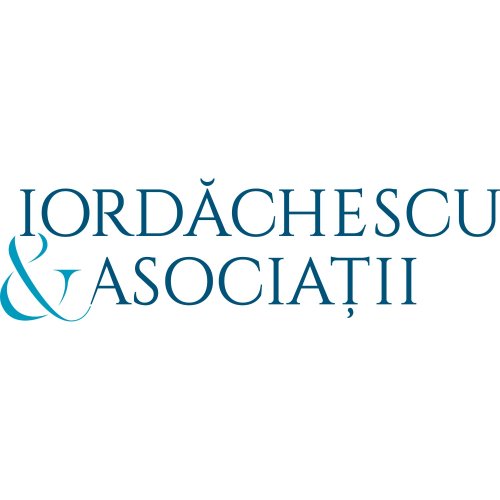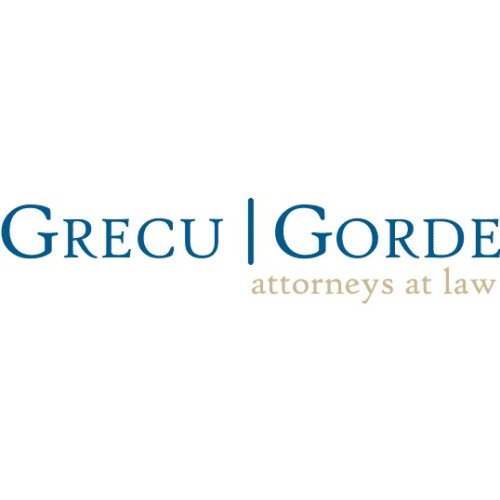Best Faith-Based Law Lawyers in Cluj-Napoca
Share your needs with us, get contacted by law firms.
Free. Takes 2 min.
List of the best lawyers in Cluj-Napoca, Romania
About Faith-Based Law in Cluj-Napoca, Romania
Faith-Based Law in Cluj-Napoca, Romania, refers to the legal practices and considerations that intersect with religious beliefs and institutions. Romania, as a country, respects and acknowledges the role religion plays in its cultural and societal framework. Faith-Based Law often involves issues concerning religious rights, the operation of religious organizations, family law dealing with religious marriages, and the rights of individuals to practice their faith. Cluj-Napoca, being a diverse and multicultural city, reflects these complexities and provides a dynamic landscape for legal professionals working within this niche.
Why You May Need a Lawyer
Individuals and organizations may require legal assistance in the realm of Faith-Based Law for various reasons:
- Religious Organizations: Legal advice might be necessary for establishing, registering, and operating religious organizations, ensuring compliance with national laws and regulations.
- Religious Rights: Individuals may need legal protection and representation to exercise their religious freedoms in workplaces, schools, or public spaces.
- Family Matters: Navigating family law involving religious customs, such as marriages, divorces, or inheritance issues, where religion plays a critical role.
- Education: Legal issues related to religious teachings, both in private religious schools and public educational settings.
- Discrimination: Cases involving allegations of discrimination or harassment based on religious beliefs.
Local Laws Overview
Key aspects of local laws in Cluj-Napoca that are particularly relevant to Faith-Based Law include:
- The Romanian Constitution, which guarantees freedom of religion and the independence of religious organizations from state involvement.
- Law No. 489/2006 on Religious Freedom and the General Regime of Religions, Central in governing religious affairs and organizational matters.
- The Civil Code and Family Code, which interact with religious customs, especially in the context of marital and family laws.
- Anti-Discrimination Laws: Legislation aimed at protecting against discrimination based on religion in various contexts such as employment or education.
Frequently Asked Questions
What constitutes a religious organization under Romanian law?
A religious organization in Romania is typically a legally recognized entity that engages in religious activities or worship. This status grants certain legal rights and responsibilities.
How do I register a religious organization in Cluj-Napoca?
Registration requires submitting documentation, including the organization's statutes, founding members' information, and religious doctrine summary to the Ministry of Culture and Religious Affairs.
Can a religious organization own property?
Yes, religious organizations can own property to carry out their activities, a right guaranteed by Romanian laws.
What legal protections exist for religious discrimination in Romania?
Romanian law prohibits discrimination on several grounds, including religion. Complaints can be addressed through the National Council for Combating Discrimination (CNCD) or courts.
How does Faith-Based Law affect matrimonial law?
Marriage laws in Romania are generally secular; however, religious traditions can be accommodated in marriage ceremonies but must comply with civil registration mandates.
Can religious organizations establish their schools?
Yes, religious organizations can establish schools, provided they meet educational standards and curricular requirements set by Romanian law.
Are there any tax exemptions available to religious organizations?
Religious organizations may qualify for tax exemptions on properties used for religious activities and tax benefits for donations, subject to regulatory compliance.
How are religious holidays recognized legally?
Romanian law recognizes certain religious holidays, granting public holiday status and employment rights for practitioners to observe such days.
What are the legal considerations for holding religious gatherings?
While generally protected under freedom of assembly, religious gatherings must comply with public order regulations and obtain necessary permits if applicable.
Can foreign religious leaders work in Cluj-Napoca?
Foreign religious leaders can work in Romania, including Cluj-Napoca, but must adhere to immigration regulations, including obtaining the necessary visas or permits.
Additional Resources
For more information and assistance, consider reaching out to:
- Cluj-Napoca Bar Association: Offers directories of lawyers specializing in Faith-Based Law.
- National Council for Combating Discrimination (CNCD): Provides guidance and support for discrimination-related issues.
- Romanian Ministry of Culture and Religious Affairs: Offers resources for religious organization registration and compliance.
- Local Universities: They may offer legal clinics or services for community members needing Faith-Based Law assistance.
Next Steps
If you need legal assistance in Faith-Based Law, consider the following steps:
- Identify Your Needs: Clearly outline your legal issue to determine what type of legal expertise you require.
- Research Legal Professionals: Look for lawyers or firms with expertise in Faith-Based Law in Cluj-Napoca.
- Schedule Consultations: Meet with potential lawyers to discuss your case, their experience, and potential strategies.
- Prepare Documentation: Gather all relevant documents that may support your case, including any existing legal notices, contracts, or communications.
- Consider Financial Aspects: Discuss legal fees and payment plans upfront to understand the financial commitment involved.
Lawzana helps you find the best lawyers and law firms in Cluj-Napoca through a curated and pre-screened list of qualified legal professionals. Our platform offers rankings and detailed profiles of attorneys and law firms, allowing you to compare based on practice areas, including Faith-Based Law, experience, and client feedback.
Each profile includes a description of the firm's areas of practice, client reviews, team members and partners, year of establishment, spoken languages, office locations, contact information, social media presence, and any published articles or resources. Most firms on our platform speak English and are experienced in both local and international legal matters.
Get a quote from top-rated law firms in Cluj-Napoca, Romania — quickly, securely, and without unnecessary hassle.
Disclaimer:
The information provided on this page is for general informational purposes only and does not constitute legal advice. While we strive to ensure the accuracy and relevance of the content, legal information may change over time, and interpretations of the law can vary. You should always consult with a qualified legal professional for advice specific to your situation.
We disclaim all liability for actions taken or not taken based on the content of this page. If you believe any information is incorrect or outdated, please contact us, and we will review and update it where appropriate.











